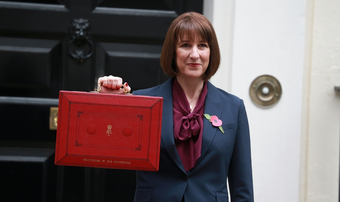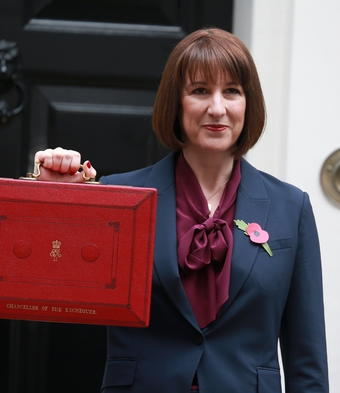Helping Christians respond to 25 years since the Good Friday Agreement
10th April 1998. I was 14 and on a school trip to London and yet, I still remember the moment I heard that the Good Friday Agreement had been signed. We had just arrived back at our hotel to get ready for our evening activity. I happened to turn on the TV in the room and the breaking news story was that the Good Friday Agreement (GFA) had been signed. At 14, I guess I didn’t really understand the significance of that moment. I was far more interested in heading out for the evening with my mates!
25 years on though, I now do see the significance of those events. In case you missed it on this week’s news, Northern Ireland has just celebrated 25 years of the signing of the Good Friday Agreement. This historical moment is now a quarter of a century old and well established within the annuls of the history of our nation. Like many this week, I have gone on a personal journey, reflecting back on the past 25 years and thinking about how far things have come. Over the last number of weeks in Northern Ireland, there has been a phrase used over and over again by all of the media outlets in relation to the GFA: "The legacy of the Good Friday Agreement"
So what is the legacy of the Good Friday Agreement? What has the last 25 years brought to Northern Ireland as a nation? I don’t want to reiterate everything that has been commented on over the last few weeks. There have been many wonderful documentaries aired on various media channels which wonderfully trace the legacy of the GFA and interview those who were instrumental in establishing it and getting it over the line and I highly recommend watching all of them!
As I have listened to the discussions over the last few days about the agreement, there are three words which have been repeated over and over again across NI which I feel are good to share:
Peace
There is no doubt about it, the GFA brought a sense of peace to a nation that has been scarred by violence. The guns were decommissioned, and a new democratic rule was established – one marked out with words of political persuasion, rather than violence and killing. My kids are growing up in a much more peaceful Northern Ireland than I did. This is something for which I am very grateful and feel very blessed by. In fact, Jesus spoke of the blessing that comes with making peace with others:
“Blessed are the peacemakers, for they shall be called the sons of God” (Matthew 5 v 9)
Hope
The GFA meant that generation of young people were filled with hope for a brighter future. One of the most lasting images of the signing of the GFA wasn’t actually what was going on behind closed doors, but rather a choir of school children, form both sides of the community standing outside singing words of hope. These young people saw the hope that was on offer. The hope of a future without violence. The hope of a shared future, where they can do what Jesus instructed us all along to “love your neighbour”, despite what side of the community they belong to. Hope that their children will grow up in a society that doesn’t care about whether they are ‘orange’ or ‘green’. Paul reminds us of the importance of hope when he wrote to the church in Rome:
“May the God of hope fill you with all joy and peace in believing, so that by the power of the Holy Spirit you may abound in hope.” (Romans 15 v 13)
Compromise
The GFA also shows the power of negotiation and dialogue and how two sides with differing opinions can actually work out their differences. However, this requires hard work and determination and crucially, a spirit of compromise. For the sake of clarity, compromise means “a settlement of a dispute by each party giving up some demands”. In negotiations, you will never get everything you want. There has to be some give and take on both sides. 25 years ago, neither side got everything they demanded, but they made it work. They were willing to set aside their differences and agree-to-disagree on some issues, for the sake of the common good. Given the current stalemate and impasse in the NI Assembly at Stormont, perhaps this is a very timely reminder of the need for compromise in political debate and discussions and a willingness to loosen the grip on some tightly held beliefs and ideologies, for the sake of the people living in the country.
2000 years ago, Paul also reminded the church in Rome of the importance of compromise and trying to live peaceable with others:
“Do all that you can to live in peace with everyone.” (Romans 12 v 18).
Please don’t misunderstand me, the GFA wasn’t a perfect agreement. There were outcomes and terms to the agreement that I don’t think I will ever get my head around, such as the early release of prisoners who had committed horrendous crimes during the troubles, but yet they were able to walk out of prison free. Imagine how hard that must have been (and still is) for the families of loved ones who were senselessly murdered or injured.
Taken as a whole, the GFA was a truly remarkable moment in the history of our nation. There has been some debate over the last few weeks about whether it is right to celebrate it, as some communities feel that they have ultimately been let down by the agreement. Call it a celebration, an acknowledgement or a commemoration…call it what you will, but whatever is said of the GFA, it changed life forever within this nation and took Northern Ireland out of an era of violence and into a new, shared, exciting future, marked out by peace, reconciliation and a willingness to love our neighbours, no matter who they are.
The contrast between Christ and POTUS
Coinciding with the anniversary of the Good Friday Agreement, was of course a visit by the American President, Joe Biden. If you somehow missed the anniversary of the Good Friday Agreement on the news, you couldn’t really miss the fact that the POTUS had arrived on our shores. Over the last few days, I have watched countless videos on social media of Air Force One landing and taking off in Belfast, photos of crowds of people gathering along the streets, selfies that were taken with the man himself, and of course many videos of his whole cavalcade and entourage driving by. If you haven’t seen it, it really is quite a spectacle. Blacked-out SUV’s, police car after police car, emergency vehicles, motorbikes and a helicopter keeping a close eye on it all from above. And in among all of the blacked-out vehicles, in the midst of all the blue and red flashing lights is one man. Just one man. I couldn’t help but think, “All of this fuss is for one man. All of this money, all of this effort, all of these road blocks….for one man.”
And then it struck me (maybe it is because it is so close to Easter), but it’s not the first time that one man has caused such a stirring. I couldn’t help but think of Jesus and his arrival into Jerusalem. Matthew’s account tells us that “the whole city was stirred up” (Matthew 21 v 10). But what a contrast! The President of the United States vs the King of the World. POTUS vs The Christ. One with all the pomp and ceremony you imagine a world leader should have, while the other enters humbly, calmly without spectacle and splendour, riding simply on the colt of a donkey.
I will leave the political commentary of President Biden’s visit to others. I don’t feel the need to dissect the speech he delivered in Belfast, nor do I wish to comment on his agenda on trying to influence the political institutions here. That’s not for me to say. However, his visit has sparked something in me. While it has been great to welcome the POTUS to our shores, it has reminded me of the fact that soon, we will welcome Jesus, our King, back to this earth once again. Make no mistake about it, Jesus is coming back again! He said it, so it will happen.
However, as Jesus Himself said, we do not know the day nor the hour of His return. It will happen at an hour when we do not expect. On that day, there will be no lead up to the visit. There will be no road blockages in preparation. There will be no risk assessments or street sweeps. It will be in an instant, when we least expect it. It could be argued that our world is certainly not expecting His arrival anytime soon. They have either forgotten about it, or simply don’t believe it. There is little expectation or anticipation of His arrival. It’s not headline news. But in a month which has seen the threat level from terrorists in Northern Ireland raised from substantial to severe, meaning an attack is highly likely, I wonder how we as a nation would live if we applied the same principle to Jesus’ return and lived with the view that His return is “highly likely?”
“Therefore, stay awake for you do not know what day your Lord is coming” (Matthew 24 v 42).






